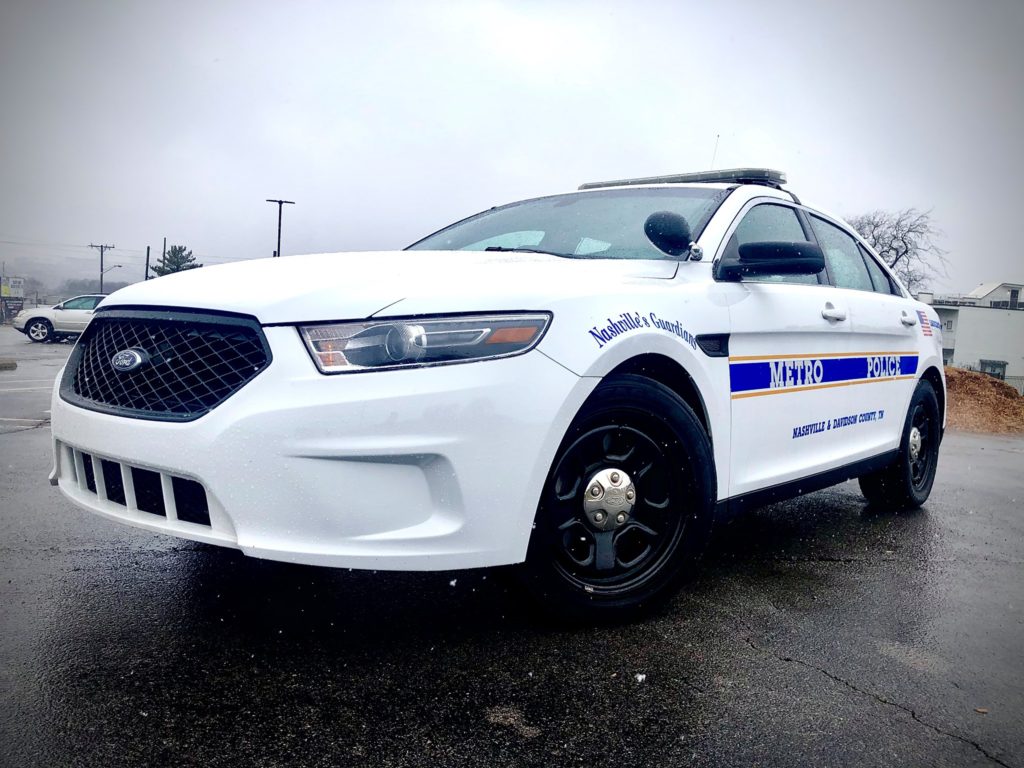
Nashville’s Metro Council will soon consider several proposals to spend federal coronavirus relief dollars on public safety.
But the funding requests have raised questions about what spending should qualify for pandemic assistance. One request that has sparked debate: the police department wants some of the money to buy new Tasers.
The funds were originally meant for costs directly related to the pandemic, like personal protective equipment and extra pay for frontline workers. But over the summer, the White House announced it could also be used for violence prevention, because violent crime has been on the rise in many cities during the pandemic — including in Nashville.
“The issues with the virus amplified the issues that were there before. And these funds can be used to address some of those longstanding issues,” Metro Finance Deputy Director Mary Jo Wiggins explained at a COVID-19 Financial Oversight Committee meeting earlier this month.
So, do Tasers pass the test?
The police department thinks so. It wants about $6 million for new Tasers, because the ones officers use now are too old.
Deputy Chief Chris Taylor told the committee the department’s current model was designed in 2003 and doesn’t work well for people who are very close or very far. He called the devices “obsolete.”
Taylor said Tasers are the best option to avoid using deadly force. Some reports have cast doubt on their effectiveness. But in two cases in 2021, the deputy chief said, officers might not have shot someone if their Tasers had functioned properly.
“If we don’t have Tasers, the only thing we’ve got is the baton. And that’s a horrible option,” Taylor said. “Not to be overly dramatic, but Tasers are a life-saving device.”
Some committee members questioned why funding for Tasers should come from pandemic aid, instead of the city’s normal budget. Taylor said the department has asked before, but its requests have been denied.
“When we have those long-term, large capital needs all the sudden like that — be it cars, radio, whatever it might be — a lot of times it doesn’t get funded,” he said. “When you look at money like this, it’s transformational, in the sense that it allows you to do some things that, as a government, you’re not ever gonna have the opportunity to, at least not in our lifetime probably, where it’s gonna be that kind of money out.”
The committee approved the ask for Tasers. They also supported a request for new police training for mental health calls, to build on a pilot program that launched in two precincts in June.
But the president’s call to spend coronavirus relief money on public safety doesn’t only apply to law enforcement. Some of the funding could also go to alternatives to policing.
Community-based safety requests
Several grassroots groups working to prevent violence in the city urged officials to earmark federal pandemic assistance for community-based safety initiatives at a November press conference. More than a dozen cities have already done so.
The mayor’s office is now offering several proposals to curb violence without relying solely on police.
Officials asked the committee for an additional million dollars for a program to prevent shootings in North Nashville. It would add to the $1 million already set aside in this year’s budget, so that the pilot program could last two years instead of one.
The mayor’s office also wants to use some COVID relief money to hire a coordinator to help organizations that apply for grants from the city’s new Community Safety Partnership Fund.
Another $300,000 would be spent to improve safety at the Napier-Sudekum public housing complex, where gun violence has spiked during the pandemic. The funding would support nonprofits that provide services within the community, renovations to the recreation center and programming to improve police-community relations.
Resident Jameka Usher told the committee the money would bring much-needed change.
“We have to show the community, the residents, that somebody cares in the area — that the government cares, that the city cares. We have to show them that someone cares,” she said. “And if we receive this grant, it can open up so many more doors and opportunities for that neighborhood.”
Next, the proposals go to the full Metro Council for a vote in early 2022.

